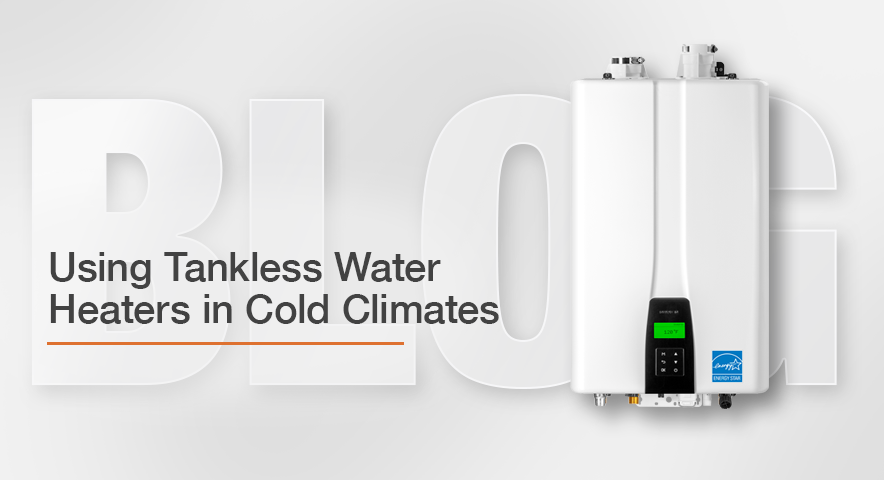Gas tankless water heaters can work extremely well in cold climates. Rather than the outside temperature, what matters most in terms of tankless water heater performance is choosing the right size and setting it at the right temperature.
Does cold weather affect tankless water heaters?
It’s a myth that cold weather lowers the temperature of groundwater coming in to be heated. Groundwater pretty much stays the same temperature year round because it’s so far down that changes in the surface temperature don’t matter.
But tankless water heaters can freeze under certain conditions:
- Tankless water heaters installed outdoors in areas that can have freezing temperatures (not recommended)
- Indoor tankless water heaters during a power outage, or when backdrafting causes negative building pressure
Compared to traditional water heaters, tankless units do have a higher risk of freezing because they don’t store a tank of hot water. To protect your tankless water heater from the cold, leave it plugged in so the built-in freeze protection function can operate, and insulate the water pipes connected to it.
Read our guide to preventing (or thawing) a frozen tankless water heater to learn more.
Tips for tankless water heaters in cold climates
If you live in a cold region (i.e. you have winters with ice and snow) you shouldn’t install your tankless water heater outdoors or in an unheated garage.
Natural gas (or propane) tankless water heaters are a better choice for cold climates compared to electric tankless water heaters, because gas tankless water heaters have a higher flow rate and heat water faster.
The best way to enjoy endless hot water year round (even in a cold climate) is to get the right size tankless water heater and set it to the optimal temperature for your building and hot water demand.
What temperature should a tankless water heater be set to?
For most residential uses, a temperature setting of 120° - 125°F is sufficiently hot and will protect against scalding.You can set your residential tankless water heater higher, but know that a child can be burned by 140°F water in just a couple of seconds.
For commercial applications with higher demand, 140°F is a good setting.
Why hot water demand matters
140°F is too hot for a shower. If your tankless water heater at home is set to 140°F, the unit will combine some of that super hot water with cold water, so that the water coming out of the showerhead is a comfortably hot temperature. In this scenario, the tankless water heater has low flow because so little 140°F water is needed for a 110°-115°F shower. If the hot water flow rate is too low it could cause the tankless water heater to shut off (a minimum flow rate must be met in order to keep the burner going).
But commercial buildings have much higher hot water demand (for example, multiple showers at a fitness center or apartment building) so meeting the minimum flow rate isn’t an issue. In addition, some businesses with commercial kitchens and laundry facilities need to meet the OSHA recommended 140°F setting for hot water.
For help choosing a tankless water heater model and determining your best temperature setting, consult a certified Navien installer or service specialist.
